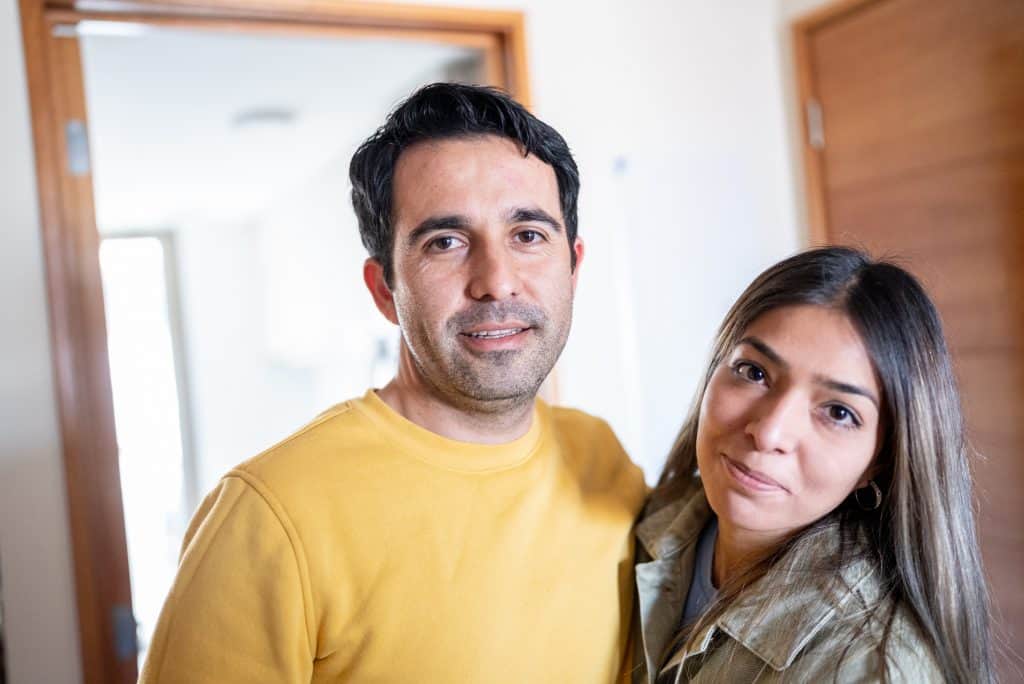My husband has been free from pornography for over four years, but I’m still discovering things about why he turned to porn all those decades ago.
The truth? The reasons aren’t porn-specific.
Porn, in many ways, is just like any other “hole-filler” that we use when we can’t quite figure out how to be whole. Does it have different consequences? Yes. But does it have some of the same roots as other addictions? Yes.
Everyone’s life experiences are different, but many of those negative situations that cause the holes have similar effects. If you resonate with some of these fears I describe below, it may be helpful to pray and ask God to help you identify at what point in your life these holes began to form. When we go back to our memories and the roots of our issues, God can really begin to heal our pasts and protect our futures.
If you’re married to someone and notice some of these same fears, it can be helpful to ask gentle questions to open the conversation. Counseling can also be extraordinarily helpful, especially if there has been significant trauma and/or abuse in your partner’s life.
Here’s an honest look into four things Craig was afraid to tell me and how his journey through recovery of addiction has erased (or at least, eased) his fears. If you can see yourself or your spouse in any of these, there’s a good chance that addressing these fears can help him/her on the road to wholeness. That’s not only good for your partner, but also good for you and your marriage.
1. He doesn’t really know how to receive love.
The truth is your spouse may not know whether or not he is really receiving love from you or others. Until he experiences a breakthrough and realizes what has been missing in life, it won’t become apparent that emotional walls have kept him from experiencing the depth of love from others.
For me, I can remember looking into Craig’s eyes, my heart and words filled with positive emotions, and getting a rather blank (or sometimes hard) stare back in return. It took almost half a year and some significant health problems to get him to understand that something in him was rejecting my love. It was almost like he was afraid to let himself feel it even one time. The (irrational) fear of it possibly being withheld the next time he needed or wanted it made it too much of a risk. At the core, Craig didn’t believe love could be unconditional in human relationships. He was weighed down by the pain and suffering he knew he had brought into our marriage. The bare bones? He didn’t think he deserved it.
As Craig discovered the enormity of God’s love for Him and received the full weight of forgiveness for his past, he was open to God showing him how it could be safe (and advantageous!) to receive love from others. Will I fail him? Of course. Will his friends fail him? Yes. But when failure meets forgiveness, love grows stronger, not weaker. We learn that we are acceptable no matter our flaws, that perfection is never a requirement, and that a relationship with God who will bring strength to our weaknesses makes reconciliation possible.
2. She’s terrified of failing.
She may pretend that her porn use isn’t a problem because problems are meant to be solved and she doubts there’s a solution to hers. She may be hesitant to try at your relationship because she looks at her track record and thinks to herself, “Why would this one be any different from all the other relationships that have failed?”
One of the best questions to ask to help your spouse through this fear is this: What would happen if you tried and succeeded?
Sometimes, the practice of dreaming gets us outside of our in-the-box way of thinking, and when we combine this with the encouragement of our spouse and friends, we begin to feel hope. Hope that maybe failure isn’t the only option. Hope that even if it doesn’t turn out exactly like we imagined, there is still good to be found. Hope that this life is filled with so many more possibilities than we could ever fathom. Ephesians 3:20 promises that He will do more than we can even imagine!
How do you help your spouse overcome this fear of failure? It helped a lot when I encouraged Craig in the small things. If I had asked him to fix something around the house and he was unsure if he could do it, he would often just leave it undone. When I started highlighting the things he could do well, it encouraged him to grow in his strengths and to figure out what he didn’t know. It was also helpful to reassure him that I believed in him, especially when the project was going as anticipated.
3. He wants to escape real life.
When boys grow up thinking they are supposed to be able to do all things manly and not ask for help (or directions), the pressures start to mount up pretty quickly. They may take their real-life deficits and try to make up for them in a fantasy world, through porn or video games. When they feel their manhood may be under attack, it’s easier to “act like a man” in a pretend world instead of learning how to be one or accepting his limitations. Any form of numbing is escaping, whether it’s porn or alcohol or work.
The key to breaking this lie is to help our spouse look for healthy ways to cope while remaining present in the here and now.
Make a list of things you love to do together. Are you doing them? Is there fun built into your weeks? Do you make time to decompress together (and individually)? This may look like taking time to pray, exercising, developing and participating in hobbies.
Remember, when you choose to numb one emotion, by default, you choose to numb them all. So when you try to shut out sadness, you also eliminate the possibility to experience joy. Dealing with our difficult emotions is, well, difficult, but it pales in comparison to navigating through life without the deep joy that is also available to us.
4. She can’t fix her problems on her own.
Here’s the very good news: no one can fix their problem with addiction on their own. In fact, this social study actually shows how the power of connection and community are crucial to overcoming addictive behaviors. If you notice that your spouse routinely relies on herself to solve every problem or talks about how she just needs more willpower, this could be a key indication that she doesn’t understand the importance or the value of relying on others for help. Other false statements to watch out for:
- “I don’t need to tell anyone else about this.”
- “I didn’t need help before. I can get through this one just like I got over my other problems.”
- “This is way too personal to share. I’m sure no other woman would understand.”
The best way I’ve found to tackle this fear with Craig is through empathy. The shame factor reigns here because the thought is this: If I were a good enough person, I wouldn’t struggle. When we feel ashamed, we hide, which in turn snuffs out our ability to connect. The antidote to shame is empathy and compassion.
Meet your spouse where she is and validate the feelings behind the statement without validating the lie. Reinforce that everyone needs help—we were actually designed to need each other!
As you and Jesus work together to draw your spouse out into authenticity and vulnerability, remember that healing of emotional wounds is often slow work, but it’s also deep and profound work. As you see your spouse overcoming these lies, call it out and show him/her the progress s/he is making. And remember Jesus tells us that in this world we will have trouble, but we can take heart. He has overcome the world (John 16:33). Jesus is working to make us all into overcomers and your spouse is no exception.










0 comments.